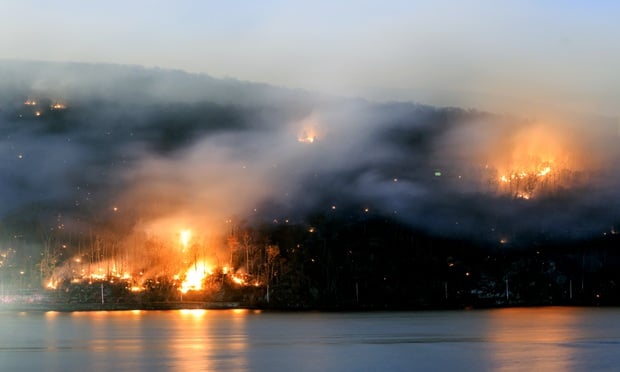Insurance industry representatives uniformly expressed satisfaction that a federal judge has upheld the sanctity of the flood exclusion.
U.S. District Judge L.T. Senter ruled Tuesday in favor of Nationwide Mutual Insurance Company in a case brought by aggrieved Mississippi policyholders claiming that Hurricane Katrina damage to their home came from wind-driven rain and not flooding.
Ernie Csiszar, president of the Property Casualty Insurers Association of America, said the Senter ruling made it clear that the flood exclusion applies to storm surge.
“In the insurance coverage debate over wind vs. water, Judge Senter's ruling has taken much of the wind, literally and figuratively out of the plaintiff's attorney's argument,” he said in a statement.
Cecil Pearce, vice president of the American Insurance Association, said in a statement that the decision is a “significant step forward for insurers and others committed to rebuilding after Katrina.”
Mr. Pearce added, however, that the industry could still face challenges. “Each and every claim must be decided on its own merits,” he said. “Each case is different, involving different fact patterns and different levels and types of coverage that apply to each policyholder.”
Neal Alldredge, senior vice president for the National Association of Mutual Insurance Companies, pointed out that “all of the individual experts were 'qualified' to express the opinion they rendered and none of the expert testimony was stricken.”
The industry's next challenge comes in Mississippi state court where Attorney General Jim Hood is suing several insurers, claiming their policy language is ambiguous and that any ambiguity should be seen in favor of the policyholder.
“I think this will do some damage to that,” Mr. Alldredge told the National Underwriter.
In a written statement, Nationwide said it was pleased with the decision and would “continue to adjust claims on a case-by-case basis.”
The one straw plaintiffs could grab was Judge Senter's contention that insurers could not cancel coverage for wind damage when it occurred in combination with flooding.
Robert Hartwig, chief economist for the Insurance Information Institute, noted, however, that Nationwide did not even invoke the so-called anticoncurrent causation clause in its denial of the claim in question.
Plaintiffs' attorneys Richard Scruggs and his son, Zach Scruggs, could not be reached for comment.
Mr. Hartwig took issue with Richard Scruggs' post-verdict comment that the judge left “the groundwork for homeowners to do very well in those cases.”
“The judge's ruling just made it very economically unfeasible for trial lawyers to bring these cases in the future,” Mr. Hartwig noted.
Want to continue reading?
Become a Free PropertyCasualty360 Digital Reader
Your access to unlimited PropertyCasualty360 content isn’t changing.
Once you are an ALM digital member, you’ll receive:
- Breaking insurance news and analysis, on-site and via our newsletters and custom alerts
- Weekly Insurance Speak podcast featuring exclusive interviews with industry leaders
- Educational webcasts, white papers, and ebooks from industry thought leaders
- Critical converage of the employee benefits and financial advisory markets on our other ALM sites, BenefitsPRO and ThinkAdvisor
Already have an account? Sign In Now
© 2024 ALM Global, LLC, All Rights Reserved. Request academic re-use from www.copyright.com. All other uses, submit a request to [email protected]. For more information visit Asset & Logo Licensing.








